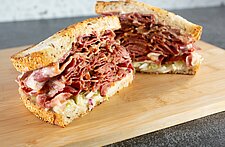In Part 1 of this series on creating food and beverage Gen Z will crave, we explored who Gen Zers are and what makes them different from Millennials. Now, in this installment, we’ll dive deeper into how this diverse, digital, socially/environmentally conscious generation tends to behave as consumers.
PART 1: Understanding Gen Z
Due to their age (approximately 10-25 years old in 2020), many Gen Zs have relatively little purchasing power. Still, this changes with each year, as more graduate and enter the workforce. So brands that can plan now for appealing to Gen Z can capture consumers that will likely only increase their purchasing power over time.
Meanwhile, younger Gen Zs still have an influence over their family’s purchasing decisions. They also may have some budget of their own from part-time jobs or their parents. Altogether, Gen Z has already become a powerful consumer group that brands will need to appeal to in unique ways, such as:
● Creating engaging digital experiences that still connect to the real world
● Being authentic
● Providing a sense of relaxation
● Speaking up about social, environmental or even political issues
In other words, for food and beverage brands, it’s not just about how good your products taste. It’s also about what your overall brand stands for and how it engages with stakeholders.
Digital Turns to Brick-and-Mortar
Although Gen Zs are highly connected, that doesn’t mean they only want to make purchases online. In fact, 81% of U.S. and Canadian Gen Zs like to make in-store purchases, finds Kearney, a management consulting firm. For many Gen Zs, shopping at brick-and-mortar provides an opportunity to try products and discover new ones.
How does this reconcile with Gen Zs’ constant connection? For one, many Gen Z consumers research products online and then buy them in-store. More than half also use their phones while in stores such as to compare prices at other stores or find other options online, according to a survey by the IBM Institute of Business Value and the National Retail Federation.
So, to appeal to Gen Z, brands should consider a digital strategy geared toward driving consumers to stores. Many are too young for credit cards that facilitate online shopping, which makes brick-and-mortar all the more important. While in-store, retailers should try to keep Gen Zs focused on their brands. For example, instead of having customers look for discounts on their phones, which could lead them to find cheaper products at another store, you could provide in-store coupons. Or, you could even connect the digital and physical worlds to drive engagement with your brand, such as by staging an area for customers to take photos in for social media.
Don't miss the next articles in this series, subscribe to the Weekly In-sight Newsletter!
Marketing Messages Aimed at Gen Z
In addition to thinking about how to reach Gen Z, e.g. through a mix of digital and in-store promotions, brands should also consider the tone of their marketing messages. Although Gen Zs are price-sensitive, that’s far from the only thing that matters.
To truly engage Gen Z, brands need to think about how their products and their overall company make the world a better place. For some food and beverage brands, there can be natural tie-ins to sustainability. For example, instead of just touting healthy ingredients, a brand might share more detail on the farming methods behind their ingredients and how that supports a healthy environment.
Gen Z also wants brands to have positive political and social messaging. That doesn’t mean a brand’s leadership necessarily has to hold the exact same views as their consumers, but look for common ground. Gen Zs in the U.S. tend to be progressive, as the Pew Research Center finds, such as on issues around social justice. So the stances that many brands have taken in 2020 to support movements like Black Lives Matter could help companies form connections with Gen Z.
To that point, Gen Z sees activists as the new celebrities. If you’re looking for a product endorser, consider going outside the main entertainment avenues and look for influencers who actively engage on social issues.
Consumer Changes Due to COVID
The COVID-19 pandemic has caused some changes in Gen Z consumer behavior. With in-person social interactions limited at this time, food and beverage companies may be able to appeal to Gen Zs by creating connections through flavor and branding. For example, since concerts are largely on hold, a beverage could be promoted in partnership with a virtual concert, or the flavors could be inspired by a musician.
Brands can also provide a bit more relaxation for Gen Z consumers at this time. This generation already tends to be stressed due to being so digitally connected, and the pandemic has heightened that stress for many.
Still, this generation is health-conscious, so not all comfort food has the same appeal. To help with relaxation and overall well-being, brands could add functional ingredients like adaptogens. Even if the pandemic is temporary, Gen Z consumers will likely continue to seek relaxation and wellness through food and beverage.
What else do Gen Z consumers crave? Tune into the remaining installments of this series to learn about more specific Gen Z food and beverage preferences.






